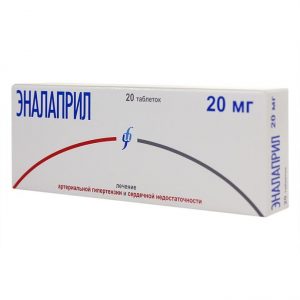Description
Release form
Capsules
Packing
30 pcs.
Pharmacological action
Westicap – a synthetic analogue of histamine. Betagistin acts mainly on the histamine H1 and H3 receptors of the inner ear and vestibular nuclei of the central nervous system.
By direct agonistic action on the H1 receptors of the vessels of the inner ear, as well as indirectly on the H3 histamine receptors of the vestibular nuclei, the central nervous system improves microcirculation and capillary permeability, normalizes endolymph pressure in the labyrinth and cochlea. However, betahistine increases blood flow in the basilar artery. It accelerates the restoration of vestibular function after unilateral vestibular neurectomy, accelerating and facilitating central vestibular compensation (due to antagonism with H3-histamine receptors). It has a pronounced central effect, being an inhibitor of the H3 receptors of the nuclei of the vestibular nerve. Dose-dependently reduces the generation of action potentials in neurons of the lateral and medial vestibular nuclei.
Relieves symptoms in Meniere’s syndrome and vestibular dizziness. A stable therapeutic effect occurs after 14 days.
Pharmacokinetics
Absorption and distribution of
After oral administration, betahistine is rapidly absorbed, binding to plasma proteins is low. The time to reach Cmax in plasma is 3 hours.
Metabolism and excretion of
Metabolized to inactive metabolites: 2-pyridylacetic acid (the main metabolite) and demethylbetagistin.
85-90% is excreted by the kidneys in the form of 2-pyridylacetic acid within 24 hours. Excretion of betahistine and demethylbetagistin by the kidneys is negligible. Through the intestine, only a small part of betahistine and its metabolites is excreted.
Contraindications
hypersensitivity to any of the components of the drug
pregnancy
lactation (due to lack of data)
childhood
lactose intolerance, lactase deficiency and glucose-galactose malabsorption syndrome.
Precautions: peptic ulcer of the stomach or duodenum (including history), pheochromocytoma, bronchial asthma. Patients of these groups should be regularly observed during treatment.
Use during pregnancy and lactation
Westicap is not recommended for use during pregnancy and lactation.
Special instructions
The therapeutic effect in some cases increases within a few months from the start of treatment.
Influence on the ability to drive vehicles and control mechanisms
Betahistin does not have a sedative effect and does not affect the ability to drive a car or engage in activities that require quick psychomotor reactions.
Composition
1 capsule contains:
Active ingredient: betahistine dihydrochloride 24 mg
Excipients: lactose monohydrate (milk sugar) cellulose microcrystalline starch potato copovidone carboxymethyl starch sodium silicon dioxide colloidal magnesium stearate.
Dosage and Administration
Inside, with meals.
A single dose of Vestikap – 8-16 mg, the frequency of administration – 3 times a day.
Improvement is usually noted already at the beginning of therapy, a stable therapeutic effect occurs after two weeks of treatment and may increase within a few months of treatment. The treatment is long. The duration of the drug is selected individually.
Side effects of the
Digestive system: nausea, vomiting, abdominal pain, bloating, dyspepsia.
From the skin: angioedema, urticaria, itching, rash.
Allergic reactions: hypersensitivity, incl. anaphylactic reactions.
Drug Interactions
There are currently no data on the drug interaction of betahistine.
Overdose
Symptoms: nausea, abdominal pain, drowsiness (when taken at a dose of up to 640 mg) convulsions, cardiovascular complications (when taken at a dose of more than 640 mg or in combination with other medicines).
Treatment: symptomatic.
Storage Conditions
In a dry, dark place at a temperature not exceeding 25 ° C.
Shelf life
3 years.
Deystvuyushtee substance
Betagistin
Terms and conditions
by prescription
dosage form
capsules
Ozon, Russia




